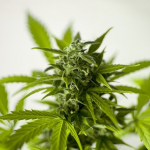Micro- and nanoplastics, found in the plaque within our arteries, are born from the ubiquitous presence of plastics in our environment. They are raising eyebrows and heart rates among scientists and physicians, courtesy of a groundbreaking study in the New England Journal of Medicine (NEJM).
cardiovascular disease
A new study demonstrates an association between elevated blood levels of erythritol and an increasing risk of MACE – major adverse cardiovascular events – such as heart attack, stroke, heart failure, death, and the need for coronary revascularization. What the study and the researchers found was “lost in translation.” Let’s see for ourselves.
“Artificial sweeteners have been widely introduced into the food chain … ” While perhaps helpful in reducing weight, could they unintentionally promote poorer cardiovascular outcomes? A new Cleveland Clinic study suggests yes. But that yes comes with a great deal of uncertainty.
Climate change is real; we contribute to it. But warmer temperatures aren't driving unprecedented increases in the number of heart attacks we suffer.
There is a campaign underway to discourage health care providers from weighing their patients unless it’s "medically necessary." Proponents of this effort are rightly concerned about the stigma often attached to obesity, but they're going about it the wrong way by minimizing the risks of being overweight.
A new study suggests that electronic cigarette users may experience strokes a decade earlier than traditional smokers. But the authors have overlooked a more interesting result: smokers who switch to vaping have a lower overall stroke risk.
Cardiovascular disease, or CVD, remains one of our biggest killers. And elevated cholesterol is one of CVD’s most influential biomarkers. Twenty-five percent of Americans over 40 take one of these medications, costing $20 billion annually. Are we getting any worthwhile bang for the buck?
There's nothing quite like the moment when your doctor says: "you have heart disease" (or diabetes). Sinners then repent with thoughts such as: "From this point on only healthy nutritious foods, daily exercise, and perhaps a bit of mindfulness." But do the sinners really repent or is that just something they tell themselves until the shock wears off, allowing their old ways to return?
For a health issue, who doesn’t love a good screening test? Some love them, either assuring or sending them to find the underlying problem. Physicians have more of a love-hate relationship. But the quiet truth is that few screening tests for general populations, in terms of reducing mortality, are productive.
It is becoming increasingly apparent that men and women have significant differences in their physiology, and subsequent manifestation of disease phenotypes. At the same time, scientists increasingly view physiology as it changes, rather than as static points in time. Those trends come together in a new paper in JAMA Cardiology, which looks at the most ubiquitous of cardiovascular diseases: high blood pressure.
According to the CDC, approximately 26 million Americans smoke tobacco daily. In comparison, 14.6 million smoke marijuana every day. In the headlong green rush for dollars -- it's, after all, a $7 billion market in the U.S. -- no one has been able to answer the question of whether all that pot smoking has any ill effects.
Air pollution remains a contentious issue. While everyone is in favor of cleaner air, there is less unanimity over which pollutants, in what concentrations, can harm our health. The linkage between air pollution and disease is beset with problems of accurately identifying a dose-response (a biologic gradient), a clear temporal connection, and, most importantly, biologic plausibility – how does a pollutant cause a disease.











